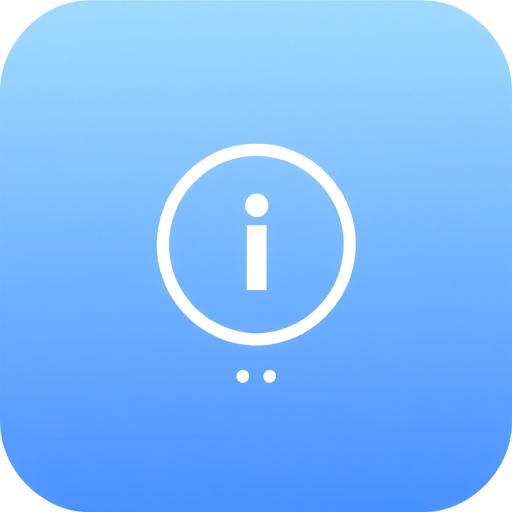In a groundbreaking advancement for physiotherapy education, researchers have unveiled the Spanish adaptation of the “Assessment of Physiotherapy Practice” tool, known as APP-S. This innovative development aims to address the increasing need for culturally relevant assessment tools in physiotherapy, particularly in Spanish-speaking regions where such resources have previously been scarce. With the growing global emphasis on quality healthcare, the adaptation of existing tools to fit linguistic and cultural contexts is essential for ensuring effective education and practice.
The original “Assessment of Physiotherapy Practice” tool was designed to evaluate physiotherapy services and educational practices comprehensively. However, the challenge arises when attempting to implement such tools across different linguistic and cultural backgrounds. The translation and adaptation of this instrument into Spanish represent a crucial step in enabling physiotherapy educators and practitioners in Spanish-speaking countries to utilize it effectively.
One of the key variables impacting physiotherapy practice is the diversity in healthcare needs across different populations. The successful translation of this assessment tool not only enhances its accessibility but also ensures that it resonates with culturally specific contexts and practices found in Latin communities. As healthcare becomes more patient-centered, tools that reflect the needs of diverse populations are vital for effective implementation.
The research community has stressed the importance of cultural sensitivity in the adaptation of tools like the APP-S. Through rigorous translation processes and cultural validation, the team led by Magni and Guerra-Martín aimed to ensure that physiotherapists can trust the insights gained from the tool. This validation process involved feedback from experienced professionals within the field and thorough testing to confirm that the Spanish version accurately reflects the tool’s original intent.
The significance of the APP-S extends beyond the realm of physiotherapy. As practitioners seek to enhance their quality of care, training programs based on validated assessment tools can lead to improved patient outcomes. The APP-S serves as a vital resource for educators in training the next generation of physiotherapy professionals, ultimately contributing to the overall advancement of healthcare standards.
Interestingly, the adaptation process has revealed insights specific to the Spanish-speaking population’s perceptions of physiotherapy and health care. Understanding these nuances is essential for effective communication and services. By tailoring the assessment to relevant cultural factors, the APP-S can facilitate better interactions between practitioners and patients.
Furthermore, the APP-S is poised to serve as an excellent foundation for future research. With a validated tool that is culturally appropriate, researchers can delve deeper into various aspects of physiotherapy practices in Spanish-speaking countries. This research can aid in identifying areas for improvement, understanding patient experiences, and enhancing educational frameworks in physiotherapy.
As healthcare systems worldwide continue to evolve, having assessment tools like the APP-S can bridge the gap between educational practices and clinical applications. The tool’s design allows for its incorporation into academic curricula and clinical training, promoting evidence-based practice among physiotherapists. It sets a precedent for the development of further adapted assessment tools across diverse languages and cultural backgrounds.
A critical timeframe for this adaptation was the post-pandemic landscape, where healthcare systems globally are re-evaluating patient care processes. Incorporating culturally valid and reliable assessment tools into physiotherapy education and practice can empower practitioners to meet the complex needs of their patients. The APP-S thus stands as not only an educational resource but also as a catalyst for improving quality care in challenging times.
Moreover, the collaborative efforts between researchers provide a model for interdisciplinary teamwork in adapting health tools. This effort included linguists, physiotherapy experts, and cultural consultants working together to create a product that respects and reflects the Spanish-speaking community’s realities. Such collaborations are increasingly necessary to enhance health education.
As a notable outcome of this work, the APP-S will be beneficial for various stakeholders in healthcare. From administrators seeking to implement best practices to educators striving to enhance their educational offering, the tool provides a methodological basis for assessment and improvement. As results from pilot studies emerge, the value of the APP-S will gain more recognition in international content.
In conclusion, the translation, cross-cultural adaptation, and validation of the Spanish version of the “Assessment of Physiotherapy Practice” encapsulate a significant advancement in healthcare education. By empowering physiotherapists with a comprehensive and culturally relevant assessment tool, the researchers are paving the way for enhanced educational outcomes and improved patient care in Spanish-speaking regions. The efforts of Magni and Guerra-Martín, therefore, contribute profoundly to the field of physiotherapy, establishing a standard for future adaptations and cross-cultural studies.
As this new iteration of the APP-S begins to permeate through educational institutions and clinical practices, it brings with it the promise of not only elevating physiotherapy education but also ensuring that equitable health care is accessible for all. The future of physiotherapy practice looks more inclusive, informed, and effective with tools that recognize and value cultural diversity.
Subject of Research: Translation, cross-cultural adaptation, and validation of the Spanish version of “Assessment of Physiotherapy Practice.”
Article Title: Translation, cross-cultural adaptation and validation of the Spanish version of “Assessment of Physiotherapy Practice” (APP-S).
Article References:
Magni, E., Guerra-Martín, M.D. Translation, cross-cultural adaptation and validation of the Spanish version of “Assessment of Physiotherapy Practice” (APP-S).
BMC Med Educ 25, 1421 (2025). https://doi.org/10.1186/s12909-025-08002-z
Image Credits: AI Generated
DOI: 10.1186/s12909-025-08002-z
Keywords: Physiotherapy, Assessment, Cross-cultural adaptation, Validation, Spanish version, Healthcare education.




